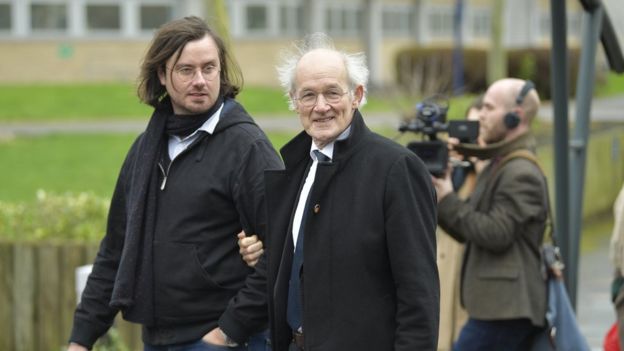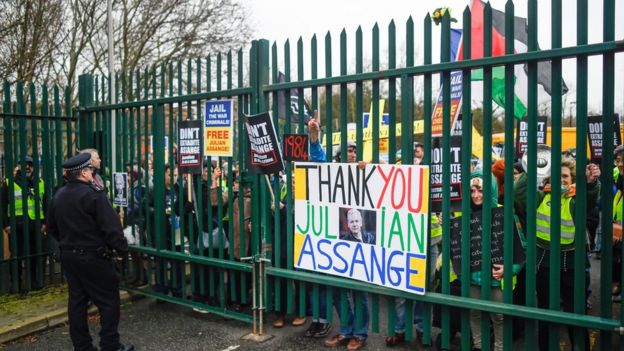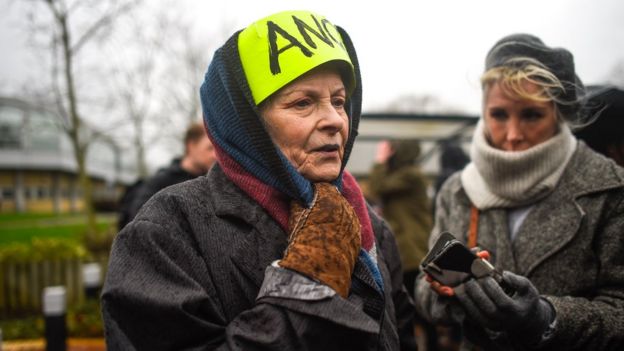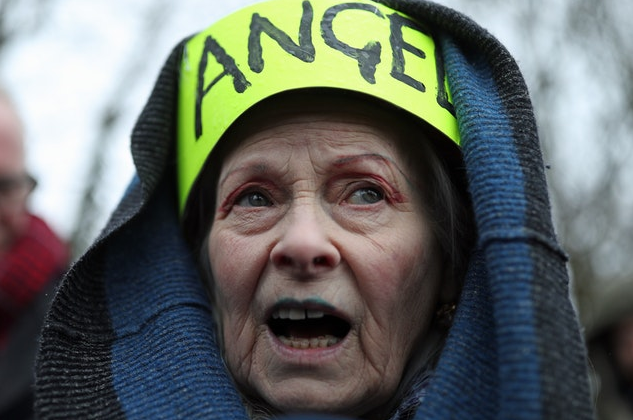Wikileaks co-founder Julian Assange revealed the names of sources who subsequently “disappeared” after he put them at risk, a court has heard.
A lawyer for the US government made the claim at Woolwich Crown Court, in London, on the opening day of Mr Assange’s extradition hearing.
The court was told the Australian, 48, was guilty of “straightforward” criminality for hacking into and publishing US military databases.
He says it is politically motivated.
Mr Assange’s lawyers say he could face up to 175 years in prison in the US if found guilty of one of the world’s biggest data breaches, but James Lewis QC, for the US, described this as “hyperbole”.
Mr Lewis told the court that Mr Assange was not facing 18 charges for publishing “embarrassing” information the US would rather was not disclosed.
He said that the majority of the charges related to “straightforward criminal” activity, which he described as a “conspiracy to steal from and hack into” the department of defence computer system along with former US army intelligence analyst Chelsea Manning.
“These are ordinary criminal charges and any person, journalist or source who hacks or attempts to gain unauthorised access to a secure system or aids and abets others to do so is guilty of computer misuse,” Mr Lewis said.
“Reporting or journalism is not an excuse for criminal activities or a licence to break ordinary criminal laws.”
He said the dissemination of specific classified documents unredacted put dissidents in Afghanistan and Iraq at “risk of serious harm, torture or even death”.
The US identified hundreds of “at risk and potentially at risk people” around the world, he said, and made efforts to warn them.
“The US is aware of sources, whose redacted names and other identifying information was contained in classified documents published by Wikileaks, who subsequently disappeared, although the US can’t prove at this point that their disappearance was the result of being outed by Wikileaks.”



That prompted Mr Assange to address the court before the lunch break, saying: “I’m having difficulty concentrating. All this noise is not helpful either.”
“I understand and am very grateful of the public support and understand they must be disgusted…”
But District Judge Vanessa Baraitser then stopped him from speaking and asked his lawyer to address her instead.
Edward Fitzgerald QC, said: “What Mr Assange is saying is he can’t hear and can’t concentrate because of the noise outside.”
The extradition hearing will be adjourned at the end of this week of legal argument and continue with three weeks of evidence scheduled to begin on 18 May.
Mr Assange has been held in Belmarsh prison since last September after a judge said there were “substantial grounds” for believing he would abscond ahead of the hearing.
He was jailed for 50 weeks in May 2019 for breaching his bail conditions after going into hiding in the Ecuadorian Embassy in London for nearly seven years.
He sought asylum at the embassy to avoid extradition to Sweden on a rape allegation that he denied – and the investigation was subsequently dropped.



